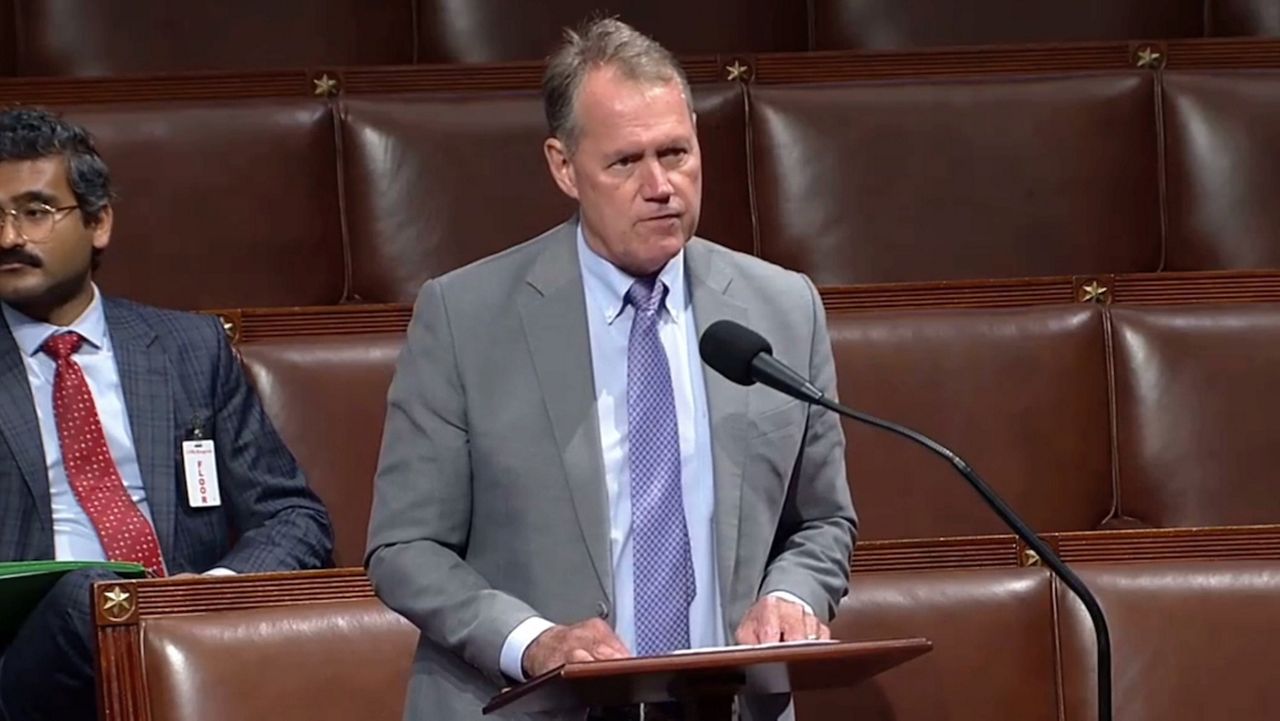A new bill introduced by U.S. Rep. Ed Case, D-Hawaii, and 11 other Congressional colleagues proposed to strengthen ties with Indo-Pacific nations via engagement with civil society organizations, refining overall communications strategies, promoting free media and supporting workforce development.
“Successive administrations and Congresses have recognized that no region is more consequential to the future of our country than the Indo-Pacific, to include the Pacific Islands,” Case said from the House floor last week. “It is crucial that we continue to broaden and deepen U.S. engagement in the Pacific Islands in pursuit of a free and open Indo-Pacific, particularly in the context of the major challenges the Pacific Islands face, such as natural disasters, economic obstacles, maintenance of civil society and threats to democracy and sovereignty from malign actors. This is not just a matter of diplomacy; it is a matter of shared responsibility and mutual benefit.”
Case said the Engage the Pacific Act takes into account specific requests from Pacific Islands leaders and priorities identified by U.S. government officials.
The bill would require the secretary of state, in consultation with the U.S. Agency for International Development administrator and the secretary of defense, to establish a Committee on Engagement with Civil Society Organizations in the Pacific Islands.
The committee would be tasked with coordinating interagency engagement with civil society organizations in the Pacific Islands, including media organizations, environmental organizations, and faith-based organizations.
“These non-governmental community organizations are pillars of Pacific Islands society,” Case explained. “They often fill critical gaps in delivery of foreign assistance and reach important sectors of the population. The committee will also be required to submit a strategy on enhanced engagement with civil society organizations in the Pacific Islands.”
The bill would also require the secretary of state to further develop the United States’ overall communications strategy in the Pacific region, which Case said “is crucial to fully and adequately communicating the breadth and depth of American efforts throughout the Pacific.”
The bill would also codify the Indo-Pacific Media Advancement Program, which promotes free media in the Indo-Pacific, including in Southeast Asia and the Pacific Islands, through training in countering misinformation and business sustainability, small grants for equipment and content sharing agreements.
As Case noted, IPMAP is currently running under a two-year, $2 million Countering PRC Influence Grant from the Department of State. The program has worked with 30 media outlets in the region. Case said, establishing the program under the State Department and authorizing appropriations for it would ensure that the program will continue to operate.
In addition, the bill would establish the Pacific Islands Training and Resources for Advancement in Development, Education and Skills program under USAID.
Case said Pacific Island leaders have asked for U.S. efforts supporting professional development via higher education scholarship programs to be expanded to include technical and vocational education and training.
The Pacific Islands TRADES Program would “support the region’s economic resilience and capacity to maximize the benefits of national investment and business opportunities,” Case said.
Finally, the bill would authorize a report on American Spaces, public diplomacy facilities operated or supported by State Department that promote engagement between the United States and other countries by sharing information about opportunities to study in the United States, participate in mentorship programs and more. The report would include descriptions of any additional resources needed for the expansion of the program.
“These provisions represent and enhance the sustained commitment of the United States to the Pacific Islands,” Case said. “This bill serves as a testament to the United States’ enduring presence in the region and demonstrates that we are willing and able to respond to the region’s specific needs in a way that is fully consistent with American national interests.”
Michael Tsai covers local and state politics for Spectrum News Hawaii. He can be reached at michael.tsai@charter.com.



